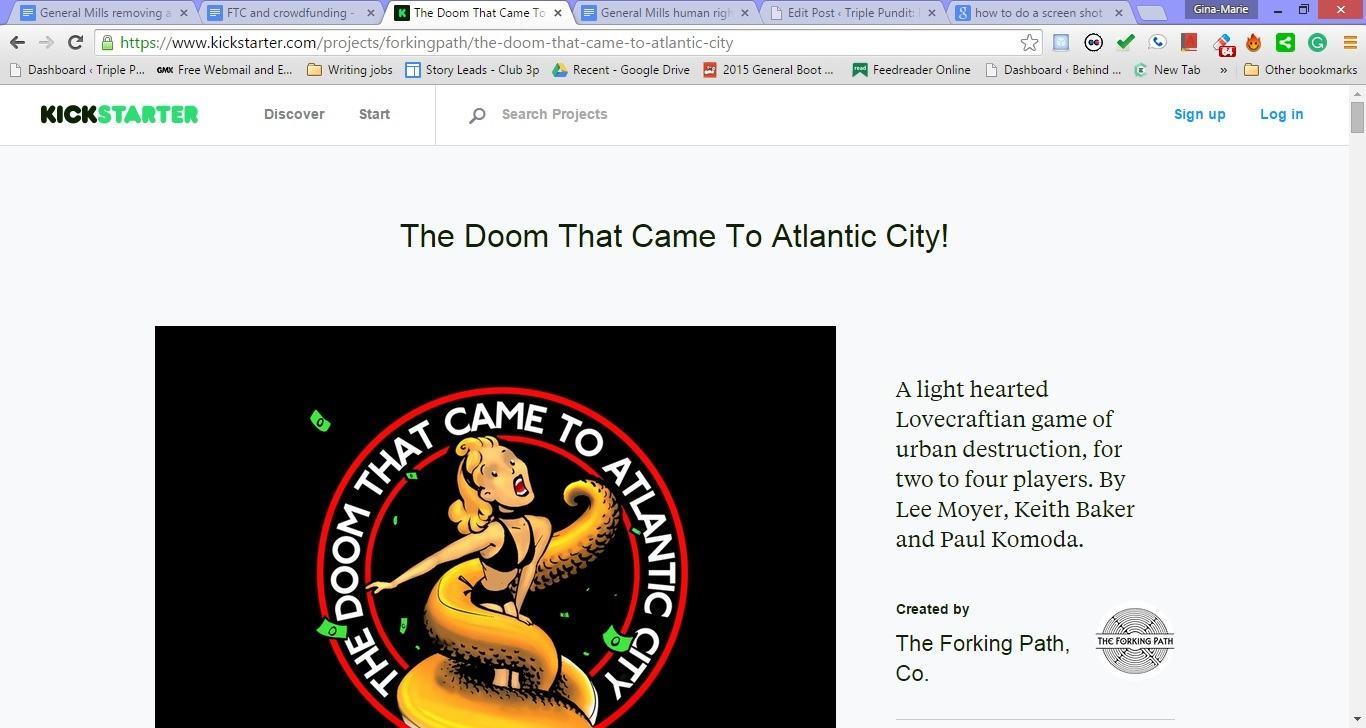
If everyone reading this article was in a room with me and I said, “Raise your hands if you have given money to a crowdfunding campaign,” most hands would probably be raised. My own hand would go up. Most of us like to help people, and crowdfunding sites like Kickstarter allow us to help someone in need or who is starting a new business venture. The sad truth is that sometimes scammers use crowdfunding sites. The U.S. Federal Trade Commission understands this and has done something about a scammer who claimed to be creating a board game.
The FTC took legal action against Erik Chevalier who solicited money in 2012 from consumers to produce the board game, The Doom That Came to Atlantic City. Chevalier promised in his Doom campaign on Kickstarter that if he raised $35,000, backers would get rewards such as a copy of the game. He raised over $122,000 from 1,246 backers. The majority of backers pledged $75 or more. In updates, he claimed he was making progress on the game. After 14 months, Chevalier announced he was cancelling the Doom project and refunding the backers’ money. However, he never provided the rewards or refunds.
Chevalier used the money raised from backers “for miscellaneous personal equipment, rent for a personal residence and licenses for a separate project,” according to the FTC’s complaint. Consumers filed complaints over his failure to provide the promised rewards or refunds.
Chevalier is prohibited from making representations about crowdfunding campaigns and from failing to honor promised refund policies, under the settlement order. The order also imposed a fine of more than $111,000, but suspended it because Chevalier is not able to pay. In other words, backers will still not be given refunds.
“Many consumers enjoy the opportunity to take part in the development of a product or service through crowdfunding, and they generally know there’s some uncertainty involved in helping start something new,” said Jessica Rich, director of the FTC’s Bureau of Consumer Protection, in a statement. “But consumers should be able to trust their money will actually be spent on the project they funded.”"Kickstarter creators have an incredible track record when it comes to following through on their promises," Kickstarter spokesperson David Gallagher told the Washington Post in a statement. "But creators who abuse our system and backers’ trust expose themselves to legal action."
The takeaway from the FTC’s settlement is that, when it comes to crowdfunding, consumers must keep in mind the Latin phrase "caveat emptor," meaning “buyer beware.” We must all be careful when we read about crowdfunding initiatives. There are more Erik Chevaliers out there.
Image credit: Kickstarter

Gina-Marie is a freelance writer and journalist armed with a degree in journalism, and a passion for social justice, including the environment and sustainability. She writes for various websites, and has made the 75+ Environmentalists to Follow list by Mashable.com.














